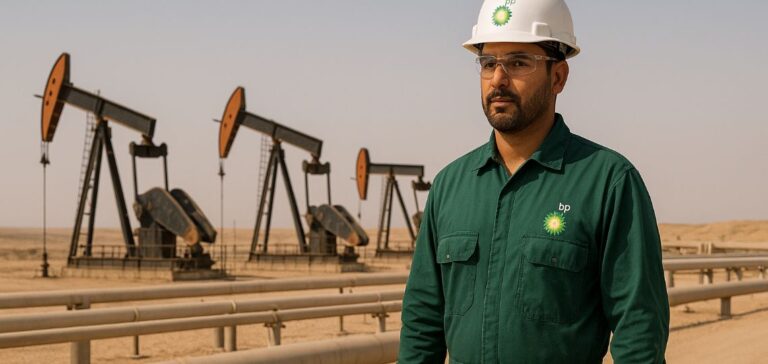BP plc confirmed it had achieved several critical objectives in the development of its oil projects in Iraq and Angola, continuing the optimisation of its upstream portfolio. The British company notably completed production expansions on existing fields, as well as infrastructure upgrades to support its future growth. These announcements were made during a technical update distributed internally to project partners.
Development of the Rumaila oil field in Iraq
In Iraq, BP reported continued progress at the Rumaila oil field, which it co-operates with Basra Oil Company and China National Petroleum Corporation (CNPC). Rumaila’s current production is now approaching 1.5mn barrels per day, following the commissioning of new treatment units and improvements to water injection. The company specified that these upgrades aim to sustain production while meeting the contractual targets set with the Iraqi government.
Rumaila is one of the largest oil fields in the world, and its development remains a strategic priority for BP, which holds a major technical stake in the project. The company also stressed the importance of efficient secondary recovery management to extend the field’s economic life.
Expansion of activities in Angola
In Angola, BP completed the start-up of new wells as part of its drilling programme in block 31, operated by BP Angola (a local entity of BP plc). First oil from the PAJ project was extracted in early April, and initial production exceeds the technical forecasts established during the design phases. The company indicated that this rapid development strengthens its presence in Angola, where it has been a historic player for more than 30 years.
BP also plans to initiate new maintenance works on several offshore facilities to ensure the stability of its deepwater operations. These projects are part of the objective to maintain Angolan production capacity above 200,000 barrels per day.
Operational outlook
According to BP’s technical managers, these advances in Iraq and Angola should ensure the continued contribution of the two regions to the company’s overall hydrocarbon volumes. BP did not provide public numerical forecasts but emphasised that securing existing production and developing new projects will remain essential pillars of its upstream strategy.
The company stated that the current geopolitical context, particularly in Iraq, requires a high level of operational vigilance but has no immediate impact on its local activities. BP’s communication notes that its operations in these countries are supported by strong partnerships and longstanding cooperation agreements.






















